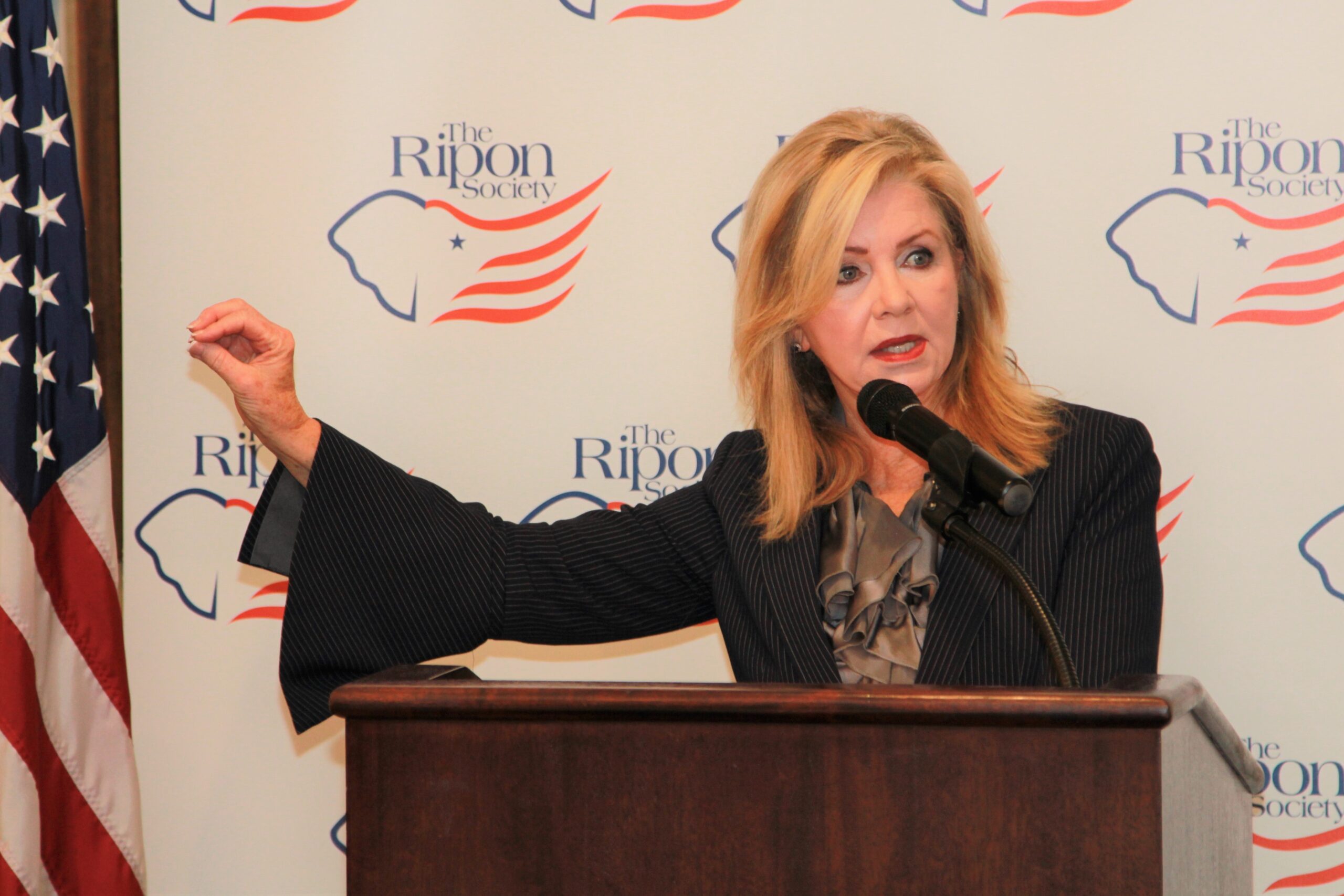 Blackburn Pushes for Action on Expanding Rural Broadband
Blackburn Pushes for Action on Expanding Rural Broadband
WASHINGTON, DC —Although the 21st century has ushered in a new age of information sharing and interconnectivity, some communities have been left behind. Lack of access to broadband internet plagues millions of Americans living in rural areas, and one leader in Congress is working to close the gap for constituents across her state.
The leader is U.S. Sen. Marsha Blackburn (R-TN), who appeared before The Ripon Society yesterday morning for a breakfast discussion focusing on her efforts to expand rural broadband. She began her remarks by explaining why high-speed internet access is so important to these communities.
“You cannot have 21st century economic development, education, health care, or law enforcement without access to high speed internet,” the freshman Senator stated. “Closing the digital divide is paramount. There are small towns and communities that struggle every single day to try to keep up, to try to find a way to hold on to their hospital. We have had about 117 hospitals close across this country in the past couple of years in rural areas. One of the reasons: they can’t get health care professionals and they don’t have access to high speed internet, which means they have no access to telemedicine.”
“When you talk to county officials and city mayors and community leaders, they will tell you we need access to high speed internet before we need a four lane road. It is the infrastructure issue of our day and age.”
According to Blackburn, she has been working with a few of her Senate colleagues to allocate more funding to address the problem, a problem that has been exacerbated by problematic wording in previous legislative initiatives.
“We put $600 million into the [Rural Utilities Service run by the USDA] to go out in rural development and fund grants for unserved areas,” she revealed. “That money is in the process of being distributed at this point. We had some entities in Tennessee that just got $2.8 million in funds to expand high speed internet into unserved areas.
“Why did we do this? It is because of [a problem] with the broadband money that went out in the stimulus. What was the wording on that deal? Under-served. What happened with that? The money went to the big cities. So you have big cities and then you still have communities that have zero. So this is about parity and this is about access and closing that digital divide, helping these small and underserved communities. We also, when I did the RAY BAUM’S Act, put money into the FCC’s rural health plan so that you can access some of those funds in rural and unserved areas.”
Blackburn said that private sector involvement had driven some progress so far. “This is an important component and it helps to close these gaps,” she explained. As far as what’s being done now in the Senate to solve this issue, Blackburn provided some insight in that regard.
“There are a couple of things that are in the works,” she noted. “First, the Internet Exchange Act. This is something that I have teamed up with Tammy Baldwin on, and it will allow these internet exchange centers to be located in rural areas and speed up this process of people jumping onto high-speed internet. When you look at the access to health care and the benefits of it, allowing this to happen is going to make a difference.
“Also, Susan Collins has been working on legislation that is well placed, and they are doing it in a bipartisan manner that is going to put additional funds into the FCC that will be for unserved in rural areas – not urban areas. And this will be another tranche of federal funds that will help to close this digital divide.”
To wrap up her remarks, Blackburn elaborated on one of her initiatives intended to directly triage the health care sector in rural communities, which are seeing a steady closing of much-needed medical facilities and an exodus of health care professionals. Not only does this trend put the well-being of some of her constituents at risk, but it also has a profound impact on local economies.
“There is another thing that we’re working on that ties right into this, and some of you are very interested in this issue. It is what I have dubbed ‘the rural health care agenda’ and I’ve got a great partner in part of this – Dick Durbin, who is working with me. In order to get health care in the rural areas, we’ve got the American Rural Health Corps, and we have legislation that will incentivize medical schools to get their interns and their residents into rural areas and then incentivize doctors and NPs and PAs to practice in rural areas.
“The second bill is legislation for an ‘innovation fund’ that will allow for freestanding urgent care centers and push new ways to deliver health care in these rural communities. You’ve all read about a community that lost their hospital and what happens next? They began to lose their factory. They began to lose the workers that are there.”
To view Blackburn’s remarks before the breakfast discussion yesterday morning, please click on the link below:
The Ripon Society is a public policy organization that was founded in 1962 and takes its name from the town where the Republican Party was born in 1854 — Ripon, Wisconsin. One of the main goals of The Ripon Society is to promote the ideas and principles that have made America great and contributed to the GOP’s success. These ideas include keeping our nation secure, keeping taxes low and having a federal government that is smaller, smarter and more accountable to the people.



